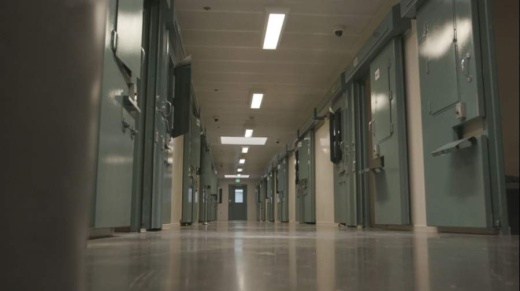When news of the coronavirus swept across the globe, Jay Jenkins, Harris County project attorney for the Texas Criminal Justice Coalition, said one place immediately came to mind as a deadly hot spot: jails.
“In a pandemic, a jail is one of the most dangerous places to be,” he said.
He was not alone.
On March 19, the American Civil Liberty Union of Texas and several other organizations sent nearly 500 letters to criminal justice officials, urging them to release individuals from county jails who are at high risk of severe illness or death from COVID-19, according to an ACLU news release.
“We’re calling on criminal justice officials to do their part to prevent a public health crisis in jails and prisons,” Sarah Labowitz, policy director for the ACLU of Texas, said in the news release.
One day later, Doctors for Change—an organization composed of over 900 health care personnel throughout the Houston region—penned a similar letter to Harris County officials. The letter called for swift action to release medically vulnerable offenders and pretrial offenders—those that have not yet been convicted of a crime—to avoid a “catastrophic loss of life” in the county jail.
“Harris County Jail is a ticking time bomb that has the potential to devastate the lives of offenders, jail personnel and others throughout the entire Harris County community,” the letter wrote.
Jenkins said he was worried the jail would become a coronavirus “epicenter,” first spreading among offenders housed in close confinement, then infecting staff, then staff’s families and visitors, and eventually into the county at large.
“This isn’t just an issue for jails,” said Chris Harris, campaigns coordinator for Grassroots Leadership, an advocacy group based in Austin that seeks to reduce reliance on criminalization. “Preventing an outbreak [in the community] is really important.”
Statewide, coronavirus numbers in jails and prisons across Texas have risen dramatically.
As of May 3, there are 872 offenders in county jails statewide with active confirmed cases, according to the Texas Commission on Jail Standards. As of publication time, Community Impact Newspaper has been unable to verify if these numbers exclude recovered cases. An additional 157 offenders are pending test results.
Among staff, there were 273 jailers with active positive results and zero suspected or confirmed deaths related to COVID-19 across Texas jails, according to the Texas Commission on Jail Standards.
As of May 3, there are 413 Texas Department of Criminal Justice employees, staff or contractors who have tested positive for COVID-19 across state prisons and 1,151 offenders who have tested positive, according to the TDCJ. There are 56 employees and 212 offenders who have medically recovered.
Release of offenders
Overall, the Texas Commission on Jail Standards reported a reduction of about 10,000 offenders from March 1 to April 1 across the state’s 241 county jails, from 68,307 to 58,254.
Harris County dropped from 9,050 to 7,859, Tarrant County fell from 4,102 to 3,398, and Bexar County’s numbers decreased from 4,212 to 3,205. Montgomery County saw its inmate population drop by one-third.
Advocates of “compassionate release” say there is no effective way to social distance and stop the spread of disease in jails and prisons, where offenders are packed like “sardines,” as Jenkins put it. But pushback has come from officials who cite public safety concerns of releasing offenders on no-cost bail.
On March 30, Gov. Greg Abbott released an order prohibiting the release of individuals in custody with a history of offenses involving physical violence.
“Such releases from county or municipal jails of those charged with, convicted of, or having a history of offenses involving physical violence or threats of physical violence would not only gravely threaten public safety, but would also hinder efforts to cope with the COVID-19 disaster,” the order states.
Harris County has had its own share of legal muddles, where county and federal judges cracked down on the county’s release of offenders. As of April 13, the county had temporarily released 372 inmates, but Jenkins said he believes around 5,000 should be released to effectively mitigate coronavirus risks.
On April 19—one month after Gov. Greg Abbott declared a statewide health emergency—Harris County Jail had 201 coronavirus cases, a jump from the two confirmed cases on March 2, according to the TCJC. About 27 out of every 1,000 inmates has tested positive for coronavirus in the Harris County Jail. Compare that to 1 out of every 1,000 Harris County residents overall and 15.9 of every 1,000 residents in New York City, according to TCJC.
“We can either let people out that some folks don’t think should be let out, or we can let the jail become the epicenter of spread in Harris County,” Jenkins said.
The Harris County Sheriff’s Department did not respond to requests for an interview.
Travis County initiatives
In Travis County, the county jail’s population dropped from 2,218 to 1,638 from March 1 to April 1, according to the Texas Commission on Jail Standards. Senior Public Information Officer Kristen Dark said this reduction can be accounted for fewer arrests and an increase in the number of inmates bonding out.
The jail implemented a variety of measures and protocols as new regulations were enacted, Dark said. Measures included enhanced sanitation procedures; acquiring additional soap; implementing temperature screening of staff at points of entry; creating a new housing unit for inmates ages 65 and older and the medically compromised; and providing masks for staff members handling certain inmates. The inmate seamstresses are also making masks for inmates, she said.
“Due to our population drop, we have implemented a 10-14 day isolation housing requirement for all new arrestees,” Dark said. “Our medical section is monitoring these groups daily. If they haven’t developed symptoms in those 10-14 days, they are then moved into general population.”
As of April 27, the jail had no confirmed COVID-19 cases among its inmate population, according to Dark, but three employees have tested positive.





